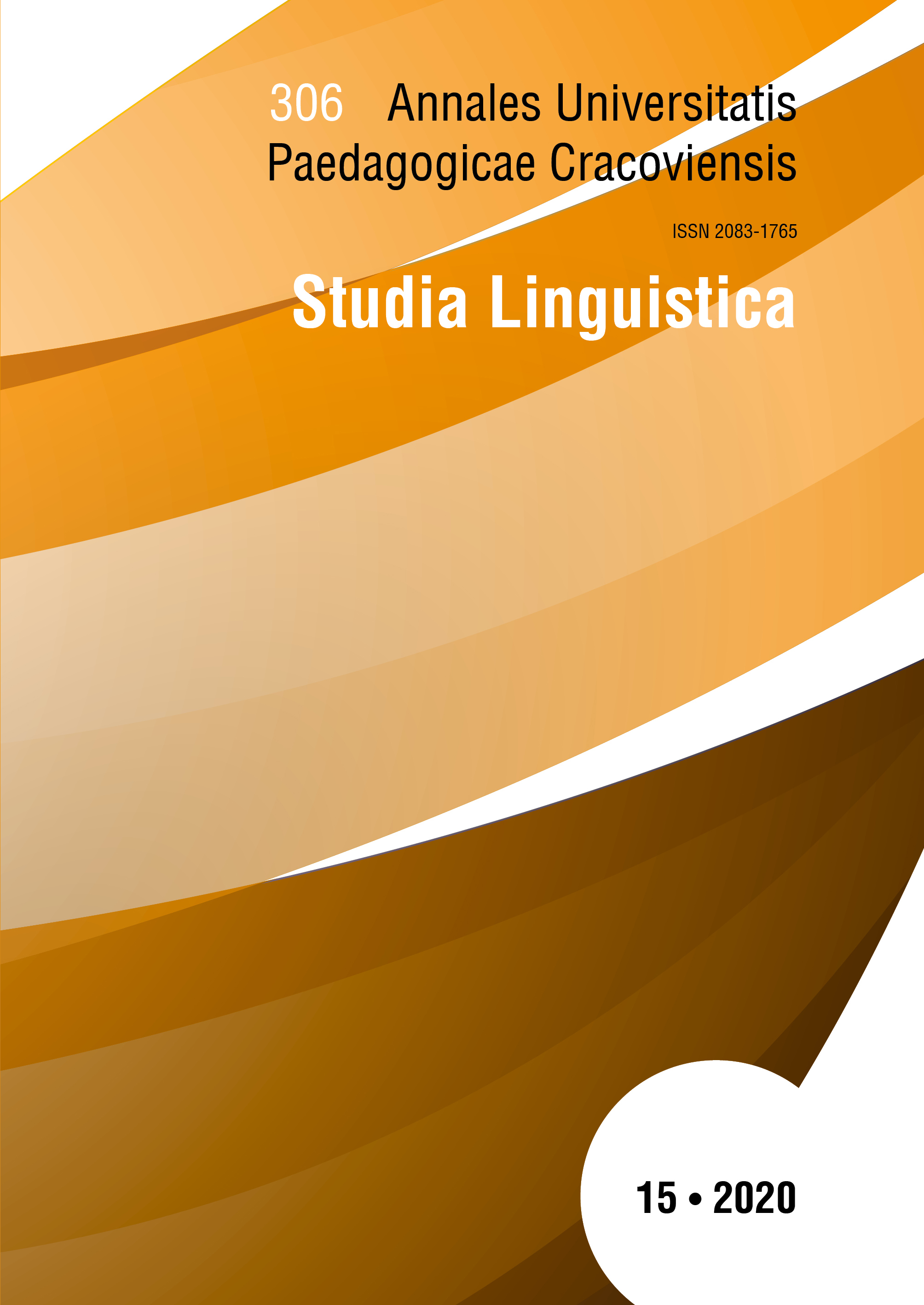What Marcin Bielski did not write about, or on a certain type of metatextual comments made in Kronika, to jest historyja świata (1564)
Main Article Content
Abstract
The article discusses a selected group of metatextual comments made in the 3rd edition of Marcin Bielski’s Kronika published in 1564. The analysis focuses on those referring to the contents of his Chronicle, i.e. the comments informing about what Bielski has already written and where he has written it, what he is about to mention, what and for what reason has been omitted or added by the author when compared to his sources, and what he has only treated superficially. A review of the variety of the linguistic methods used for constructing these metatextual comments allows for disclosing the possible motivations behind the writer’s choices: his wish to direct the reading process and to lead the reader into assuming that the presented content is credible and accurate, combined with an educational and moralistic drive.
Downloads
Article Details
Author, submitting a text to the editorial board of the journal “Annales Universitatis Paedagogicae Cracoviensis. Studia Linguistica", certifies that the content of the article has not been published so far and that the work does not violate in any way the copyright or related rights of other person, as well as other rights of third parties, and that no one's rights to the work (or any part thereof) have been missed. After signing the contract, the property rights to the published materials are transferred to the University of the National Education Commission, Krakow.
“Annales Universitatis Paedagogicae Cracoviensis. Studia Linguistica” is an open access journal, and all its content is made available free of charge to users and institutions under the Creative Commons CC-BY-NC-ND 4.0 license (attribution, non-commercial use, no derivative works). Under this license, the authors agree that their work may be lawfully reused for any purpose, except for commercial purposes, without the prior consent of the author or publisher. Everyone can read, download, copy, print, distribute and process these works, provided that the author's marking and the original publication place are correct. Published texts may not be used to create derivative works (e.g. to translate and publish in another language without the consent of the publisher). This is in line with the BOAI (Budapest Open Access Initiative) definition. "Studia Linguistica" does not charge for submitting or processing articles.
References
Korolko M., 1991, Pionier sarmackiego dziejopisarstwa – Marcin Bielski, [w:] Pisarze staropolscy. Sylwetki, t. 1, red. S. Grzeszczuk, Warszawa, s. 439–473.
Google Scholar
Kozaryn D., Szczaus A., 2017, Uwagi o języku w dawnych tekstach użytkowych, Szczecin.
Google Scholar
Piekarczyk D., 2013, Metafory metatekstowe, Lublin.
Google Scholar
Piekarczyk D., 2015, O potrzebie rozróżniania metajęzyka i metatekstu, [w:] Język pisarzy: problemy metajęzyka i metatekstu, red. T. Korpysz, A. Kozłowska, Warszawa, s. 11–27.
Google Scholar
Sławkowa E., 2015, Metatekst w świetle dokonań współczesnych dyscyplin i teorii (nie tylko) językoznawczych, [w:] Język pisarzy: problemy metajęzyka i metatekstu, red. T. Korpysz, A. Kozłowska, Warszawa, s. 29–42.
Google Scholar
Śnieżko D., 2004, „Kronika wszytkiego świata” Marcina Bielskiego. Pogranicze dyskursów, Szczecin.
Google Scholar
Wierzbicka A., 1971, Metatekst w tekście, [w:] O spójności tekstu, red. M.R. Mayenowa, Wrocław, s. 105–121.
Google Scholar
Witosz B., 1996, Metatekst w utworze literackim. Problemy teoretyczne, [w:] Literatura a heterogeniczność kultury. Poetyka i obraz świata, red. E. Czaplejewicz, E. Kasperski, Warszawa, s. 139–150. Ziomek J., 2006, Renesans, Warszawa.
Google Scholar
